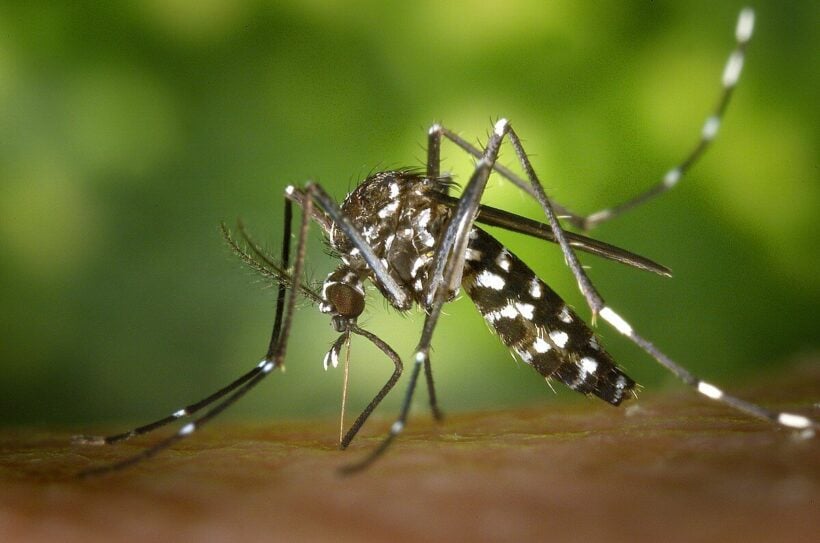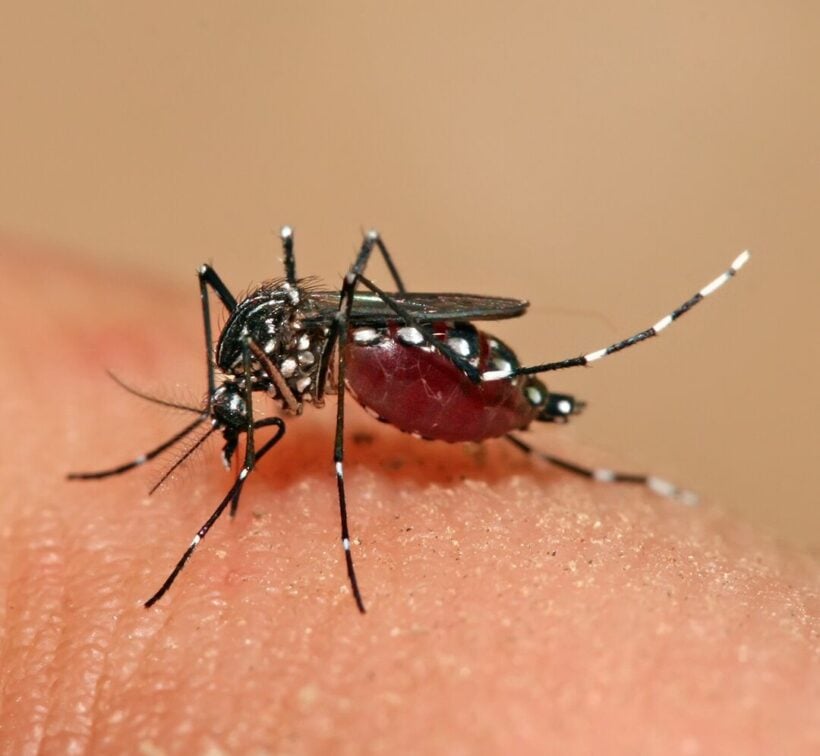Dengue fever in Thailand: How the zebra-striped mosquito wreaks havoc on residents

We have all heard that mosquitoes are the most dangerous creature to encounter. But, what kind of havoc does a tiny, zebra-striped mosquito in Thailand (and other sub-tropical areas) actually wreak on humans? Well, the answer is the widely-feared Dengue or DENV virus. As it comes in four lovely serotypes, the virus that is transmitted by the Aedes Aegypti mosquito can actually kill you. But, not to worry, as many who are infected are usually asymptomatic. The four serotypes of DENV include DENV-1, DENV-2, DENV-3, and DENV-4.
According to the World Health Organisation, if you are bitten by one of the many Aedes mosquitoes in Thailand, it is important to monitor yourself if symptoms arise.
Symptoms of DENV or Dengue fever include:
A high fever (40°C/104°F) that is accompanied by two of the following symptoms during the febrile phase (two to seven days):
- severe headache
- pain behind the eyes
- muscle and joint pains
- nausea
- vomiting
- swollen glands
- rash

If you have any of these symptoms, it is best to seek medical care as soon as possible. While you are there, it is advised to be informed of what serotype of DENV in which you have been infected. This is because recovery from one of those serotypes can provide lifelong immunity against that particular strain. However, cross-immunity to the other serotypes after recovery is only temporary or partial. Therefore, it is important to know which serotype you have been infected with as your next bout of infection could be less or more symptomatic.
For those that are infected with the severe dengue serotype, it will most likely be quite obvious as symptoms can be severe and life-threatening. As a patient enters the critical phase, which is normally about three to seven days after illness, the first day or two can reveal an actual deterioration of symptoms.
However, this decrease in symptoms is a sign of Severe DENV-2 and it must be monitored closely by your doctor. The most common decrease in symptoms is that of a temperature that is dropping. Beware of this symptom as it does not mean you are getting better, but rather that you may have been unluckily infected with Severe Dengue or DENV-2. As this serotype can cause dengue hemorrhagic fever and has been shown to belong to the Southeast Asian genotype, its symptoms include leaking plasma, respiratory distress, severe bleeding, organ impairment and fluid accumulation. Thus, it is extremely vital to stay under the care of a medical professional.
Severe DENV-2 symptoms include:
- severe abdominal pain
- persistent vomiting
- rapid breathing
- bleeding gums or nose
- fatigue
- restlessness
- liver enlargement
- blood in vomit or stool.
As Severe DENV-2 is a leading cause of serious illness and death in some Asian and Latin American countries, its wrath is no less severe to those residing in Thailand. Keep in mind, however, that early detection can lower fatality rates of this serotype to below 1%.
Latest Thailand News
Follow The Thaiger on Google News:


























